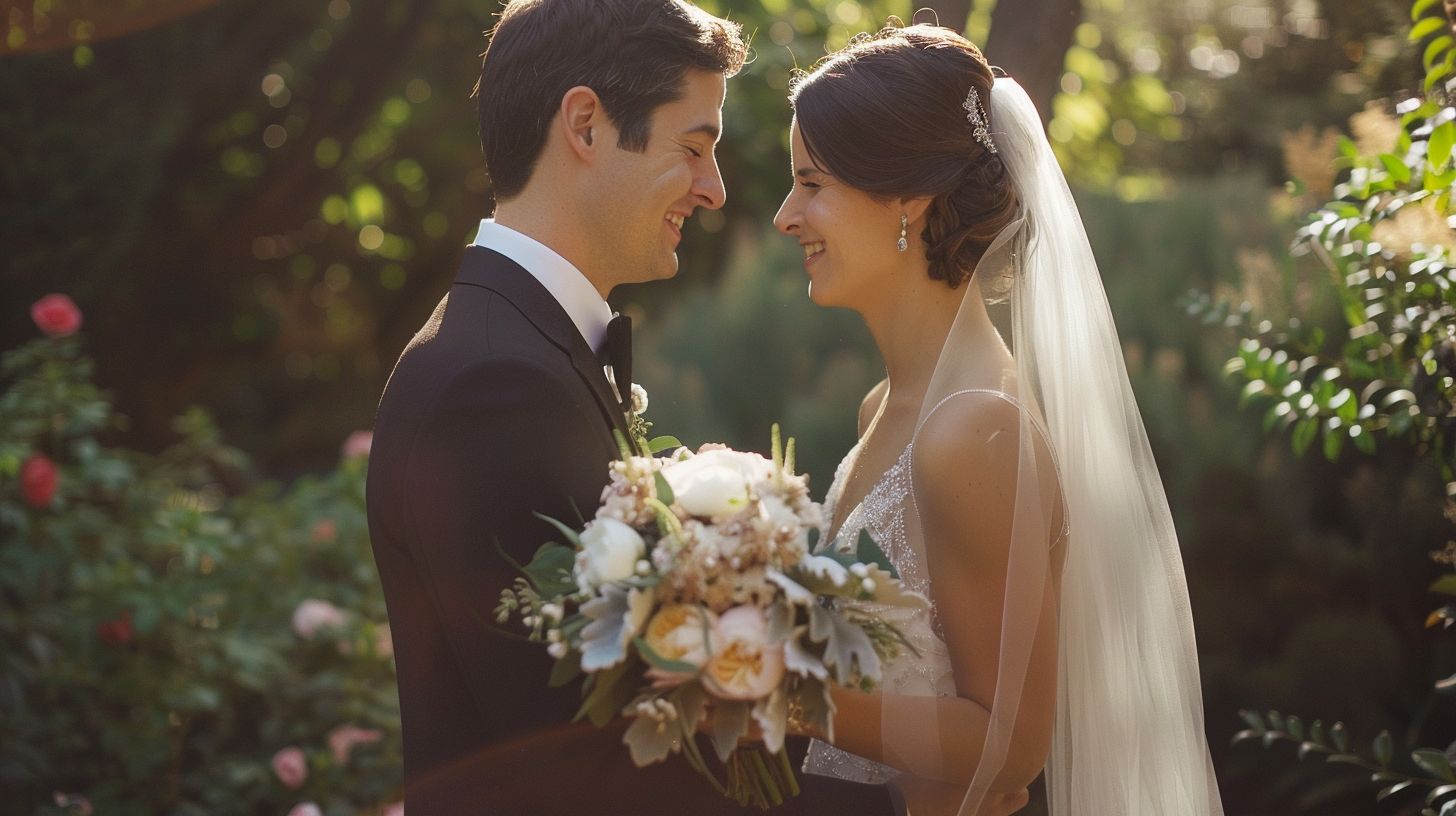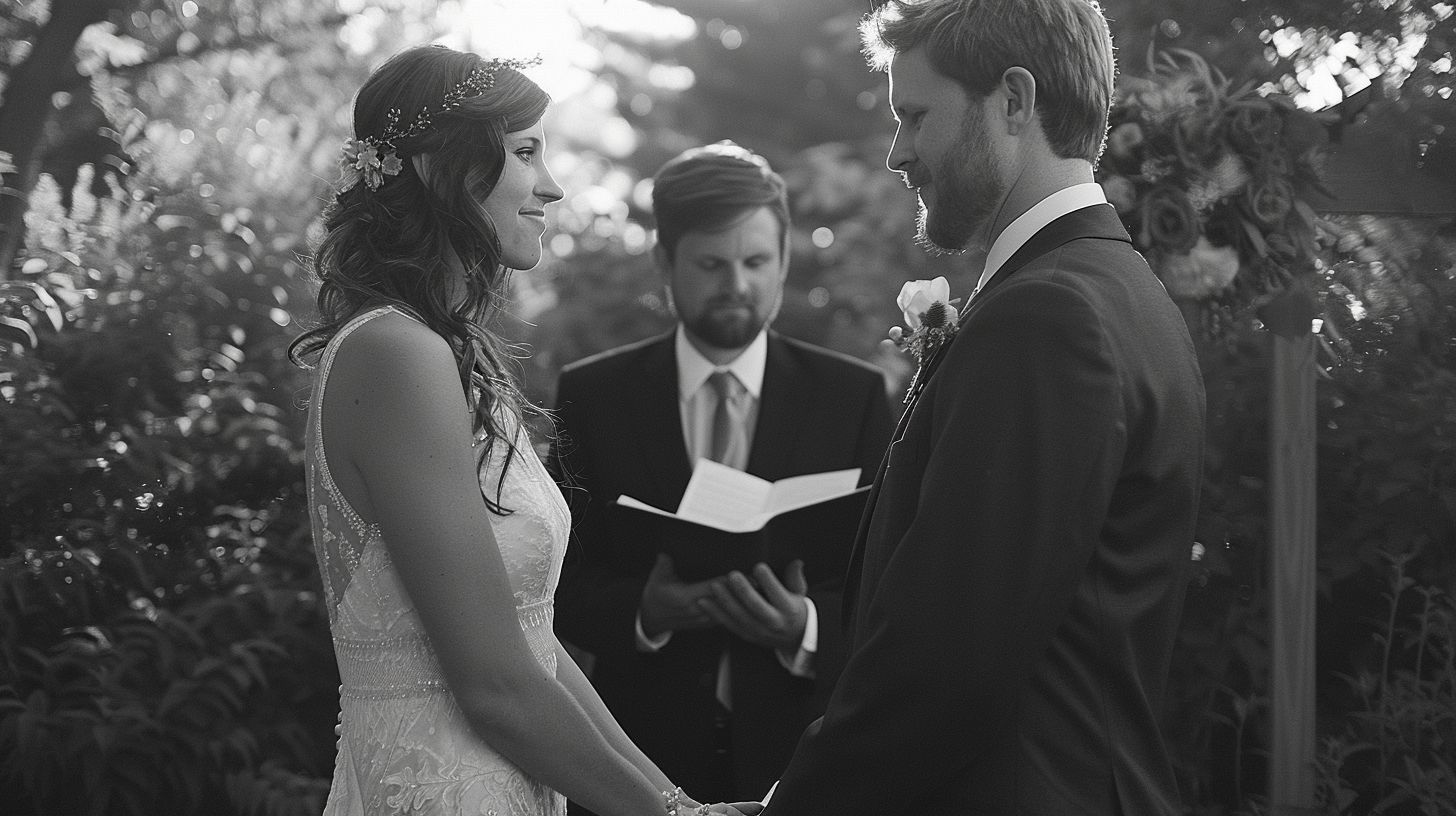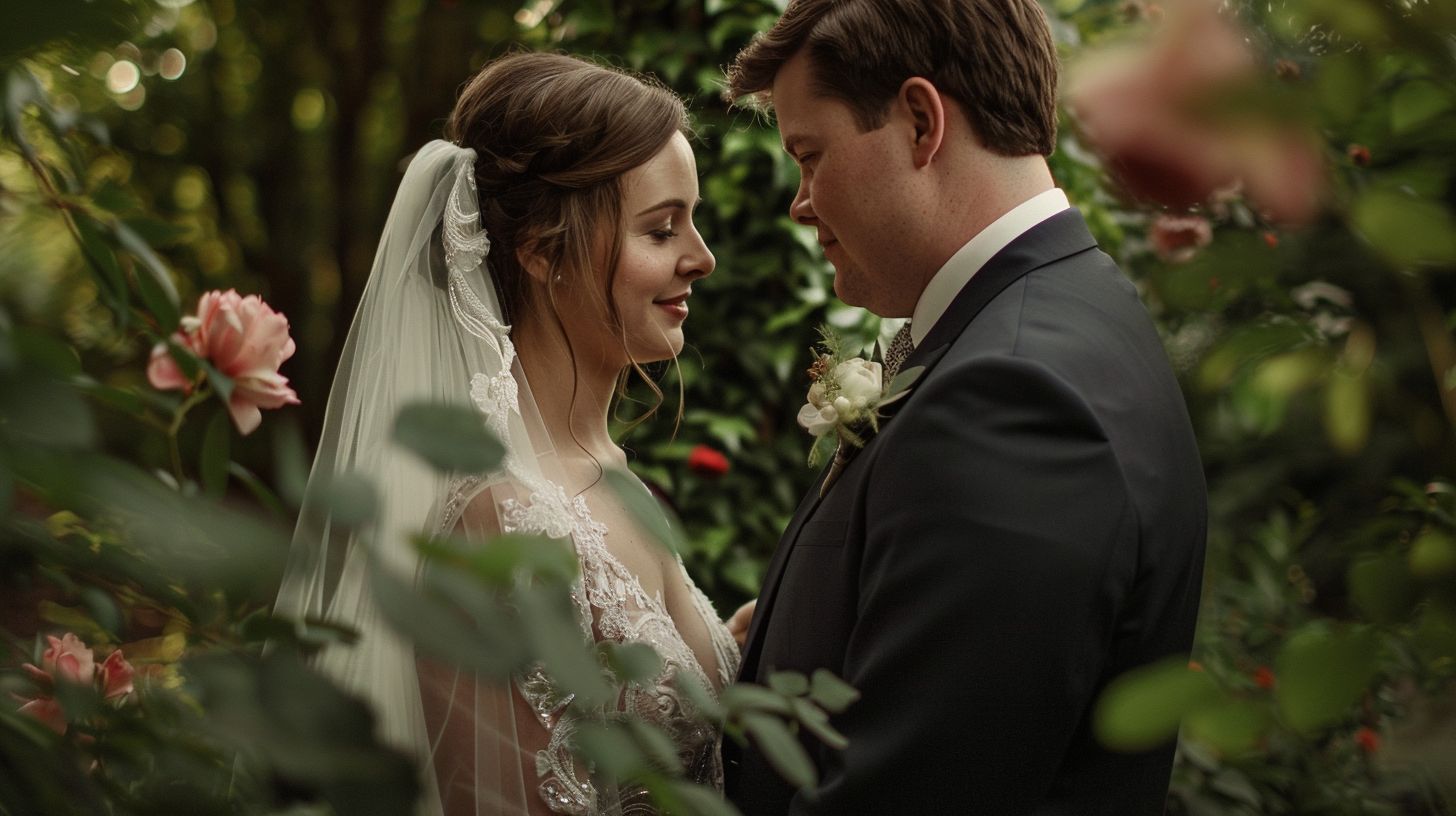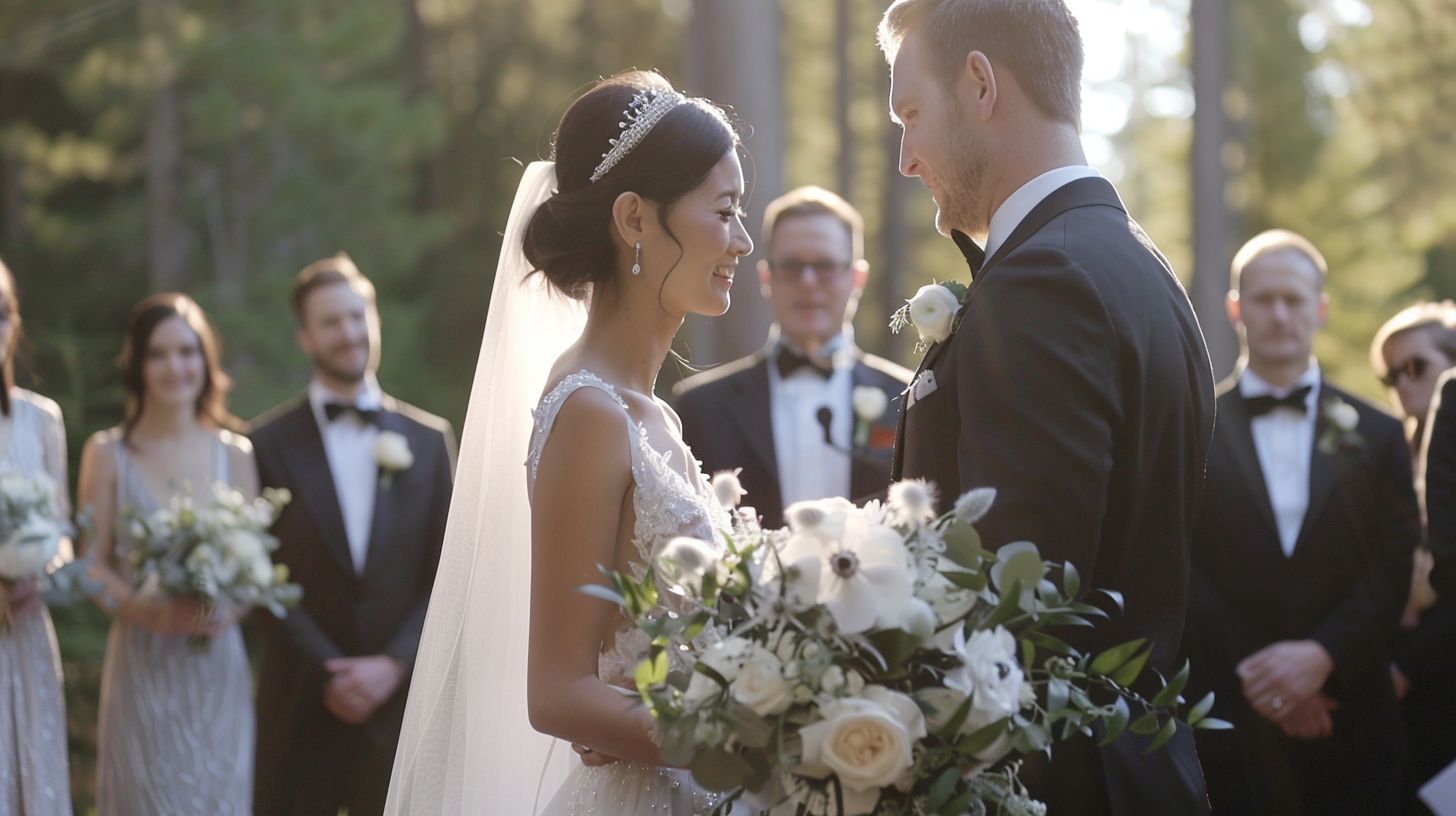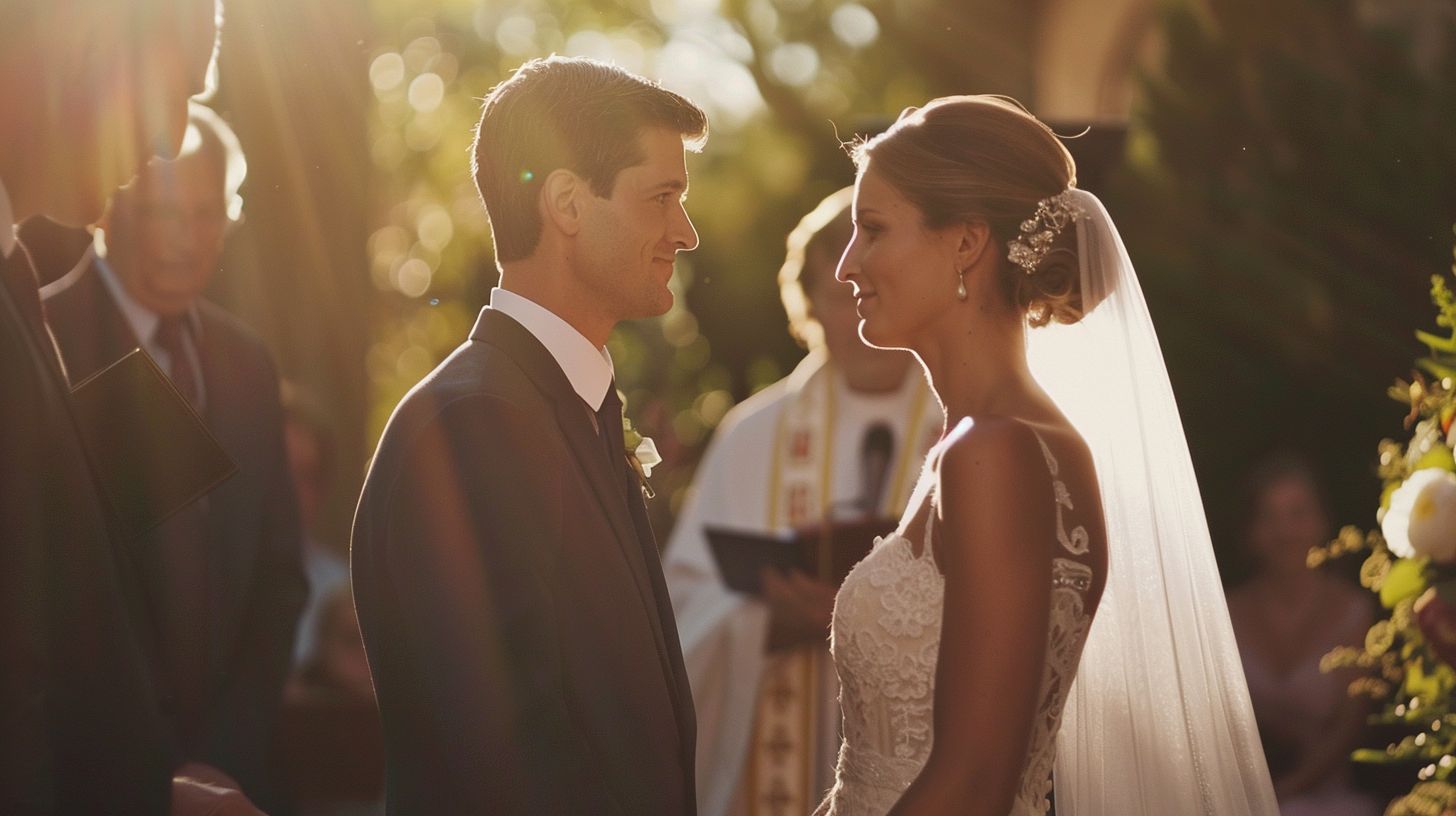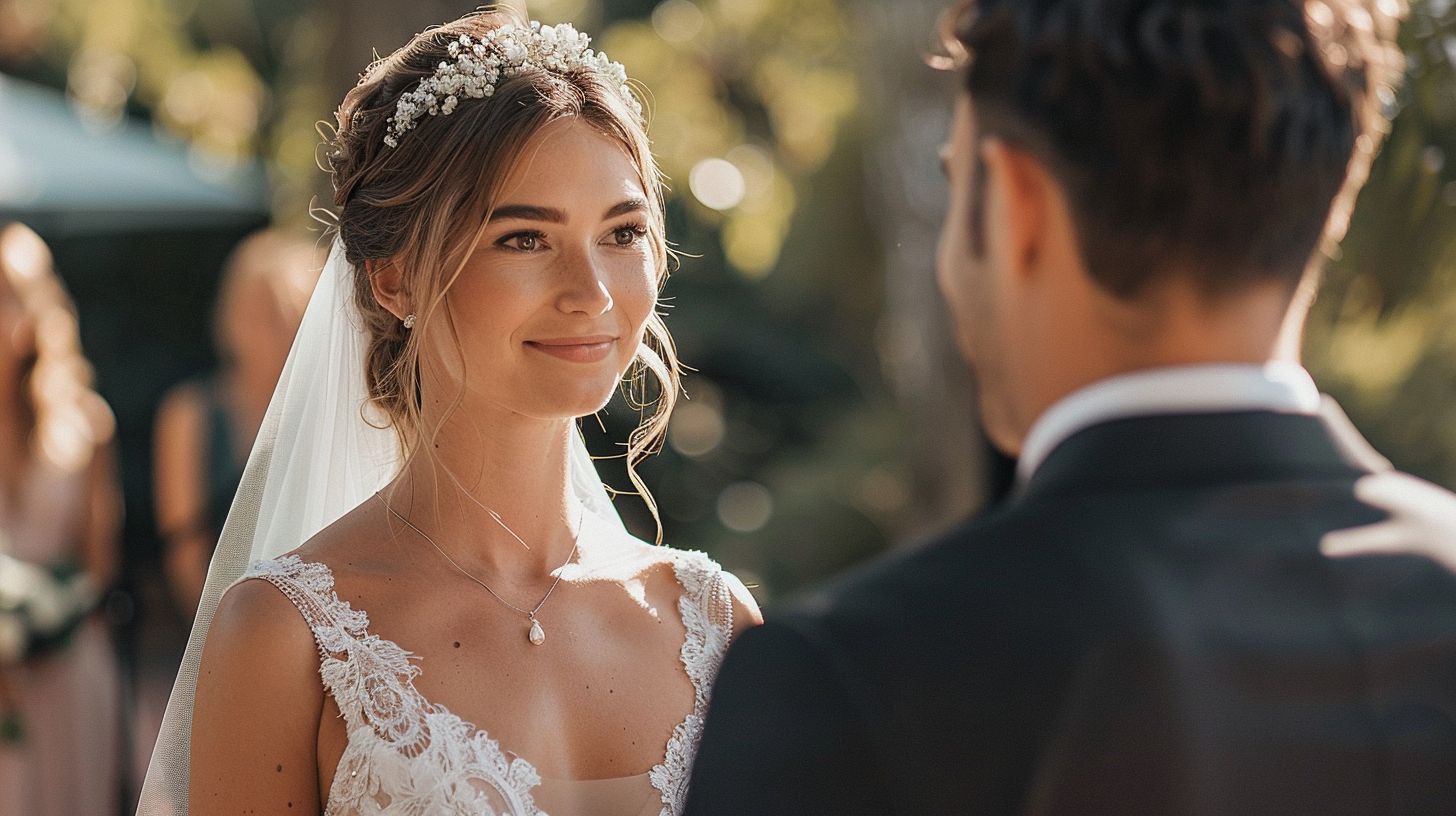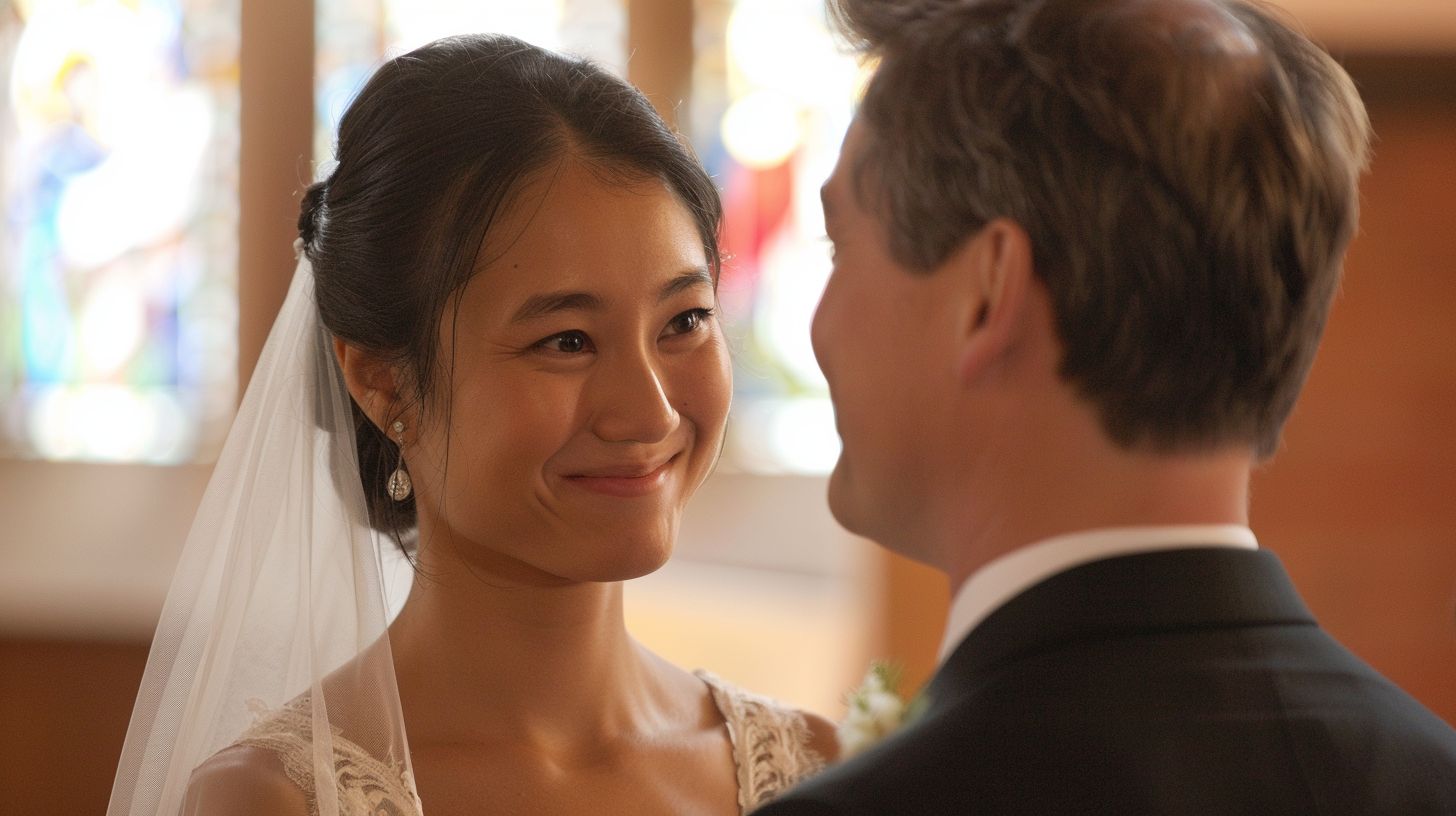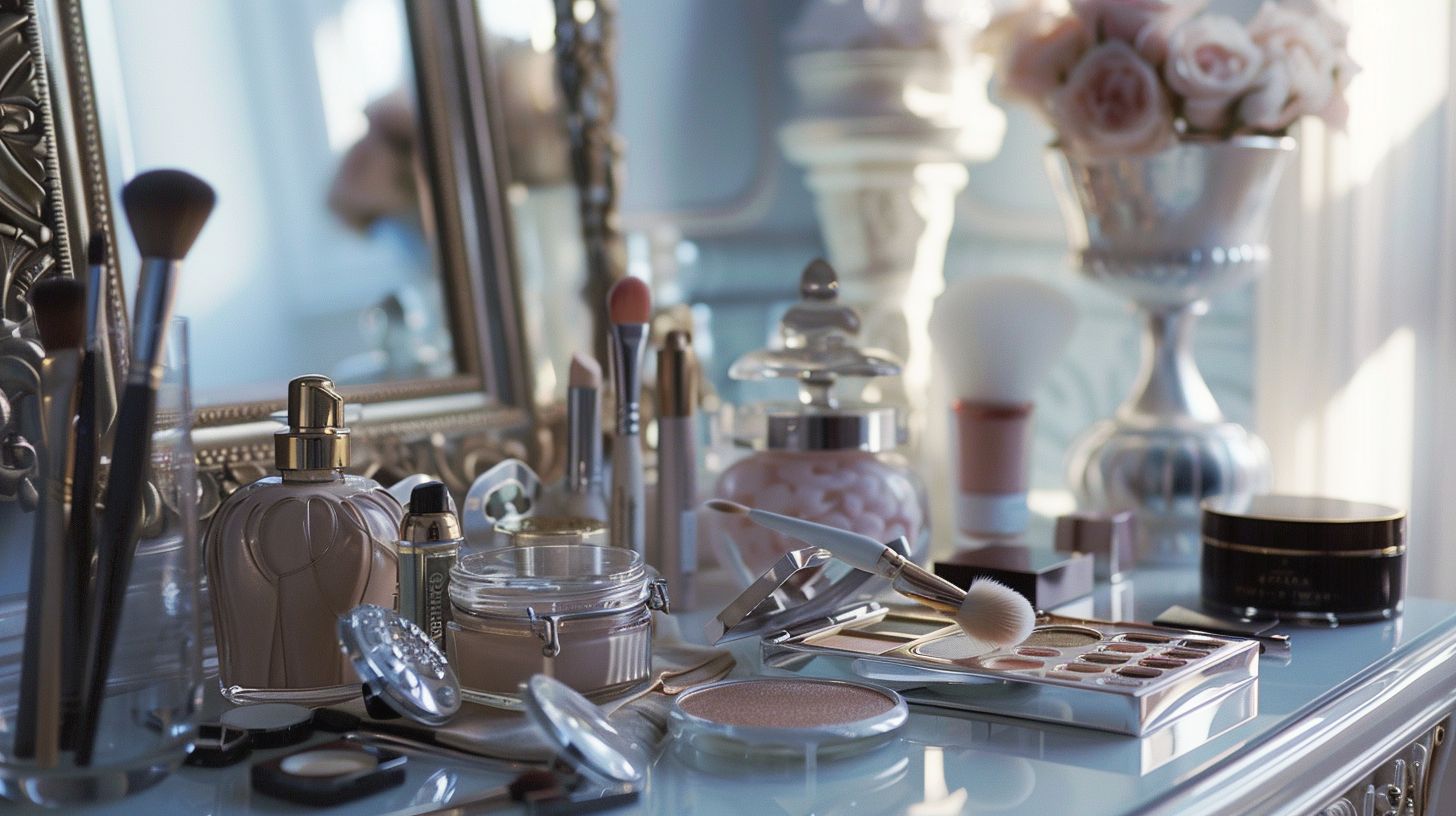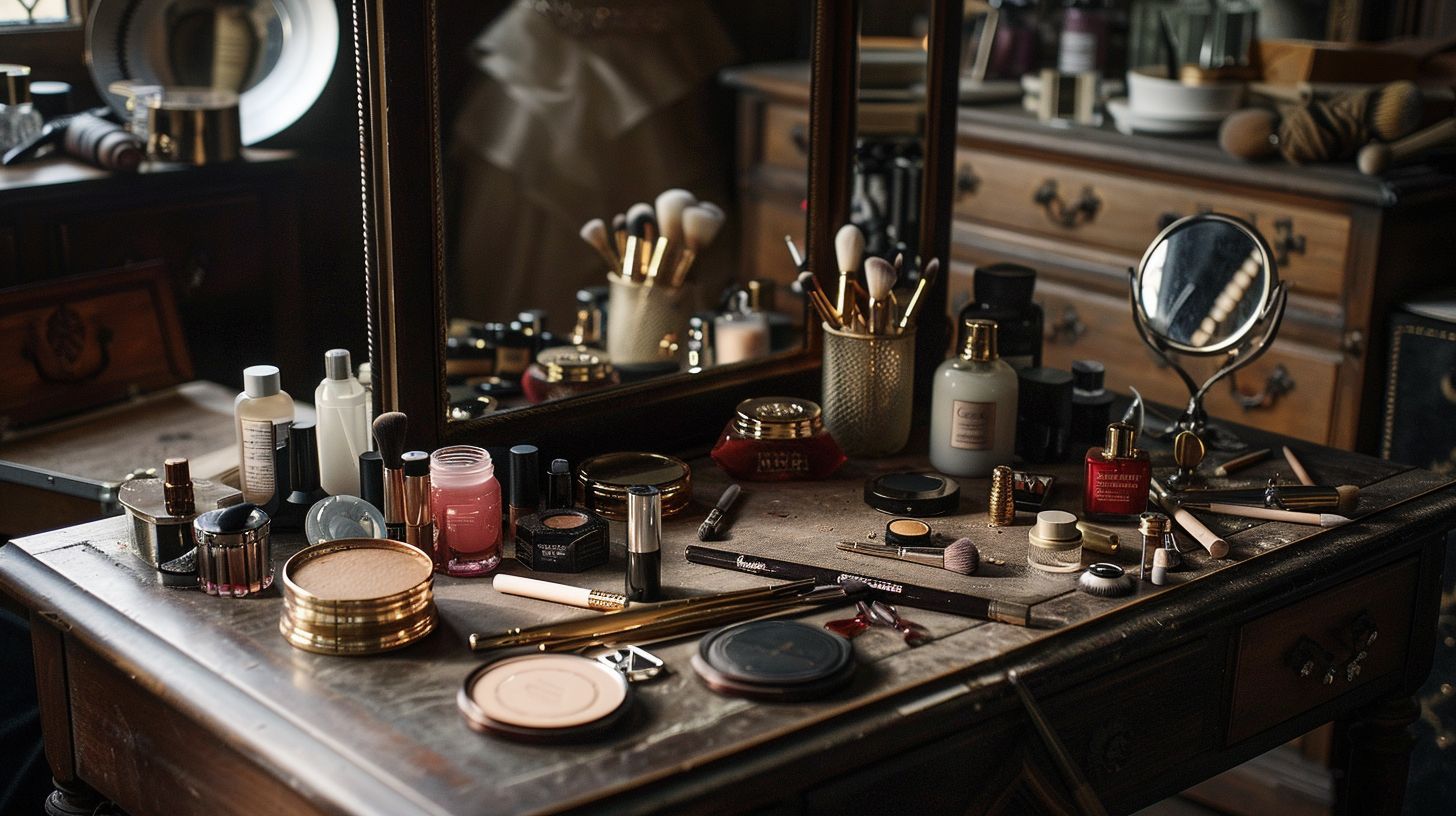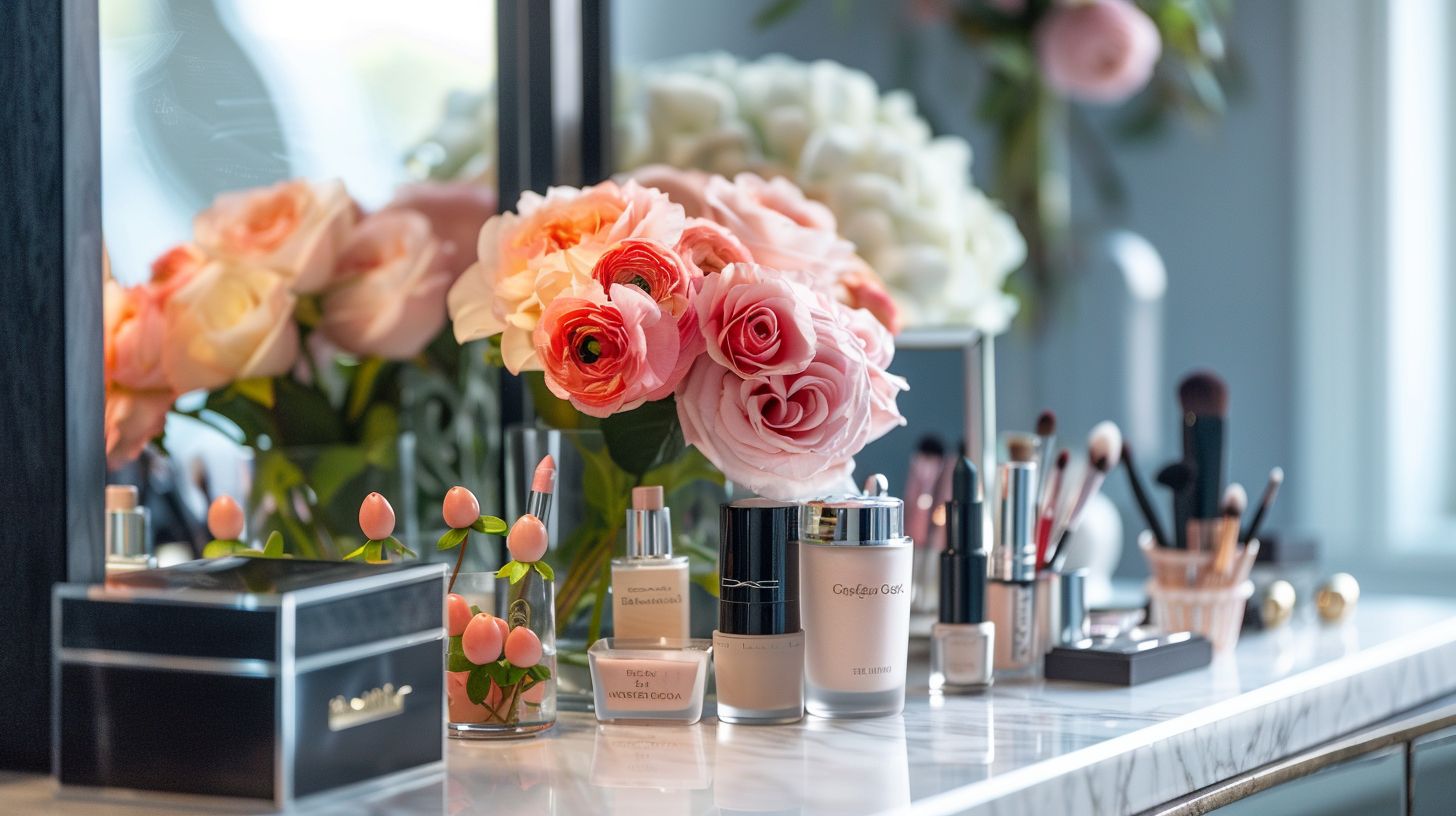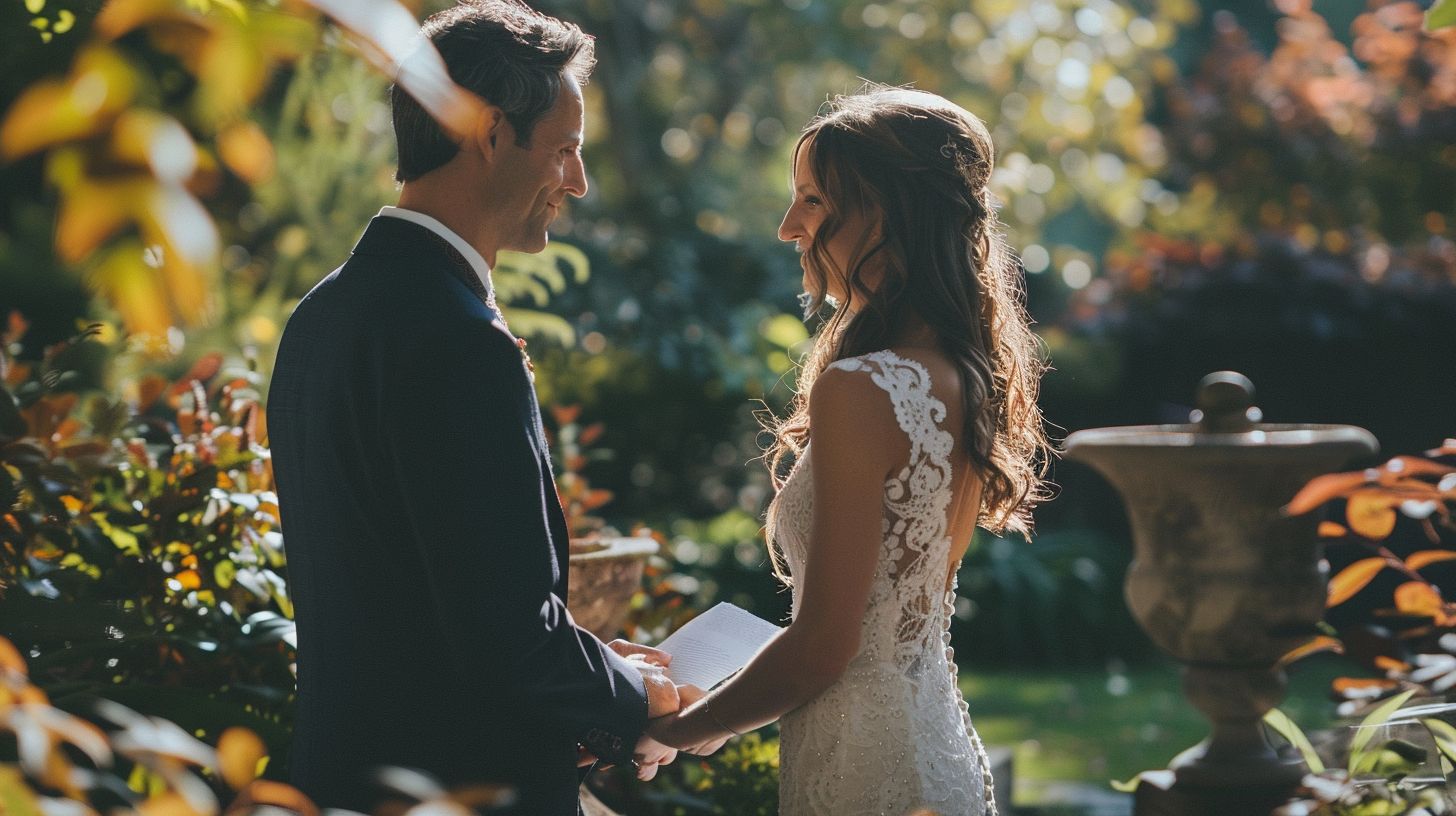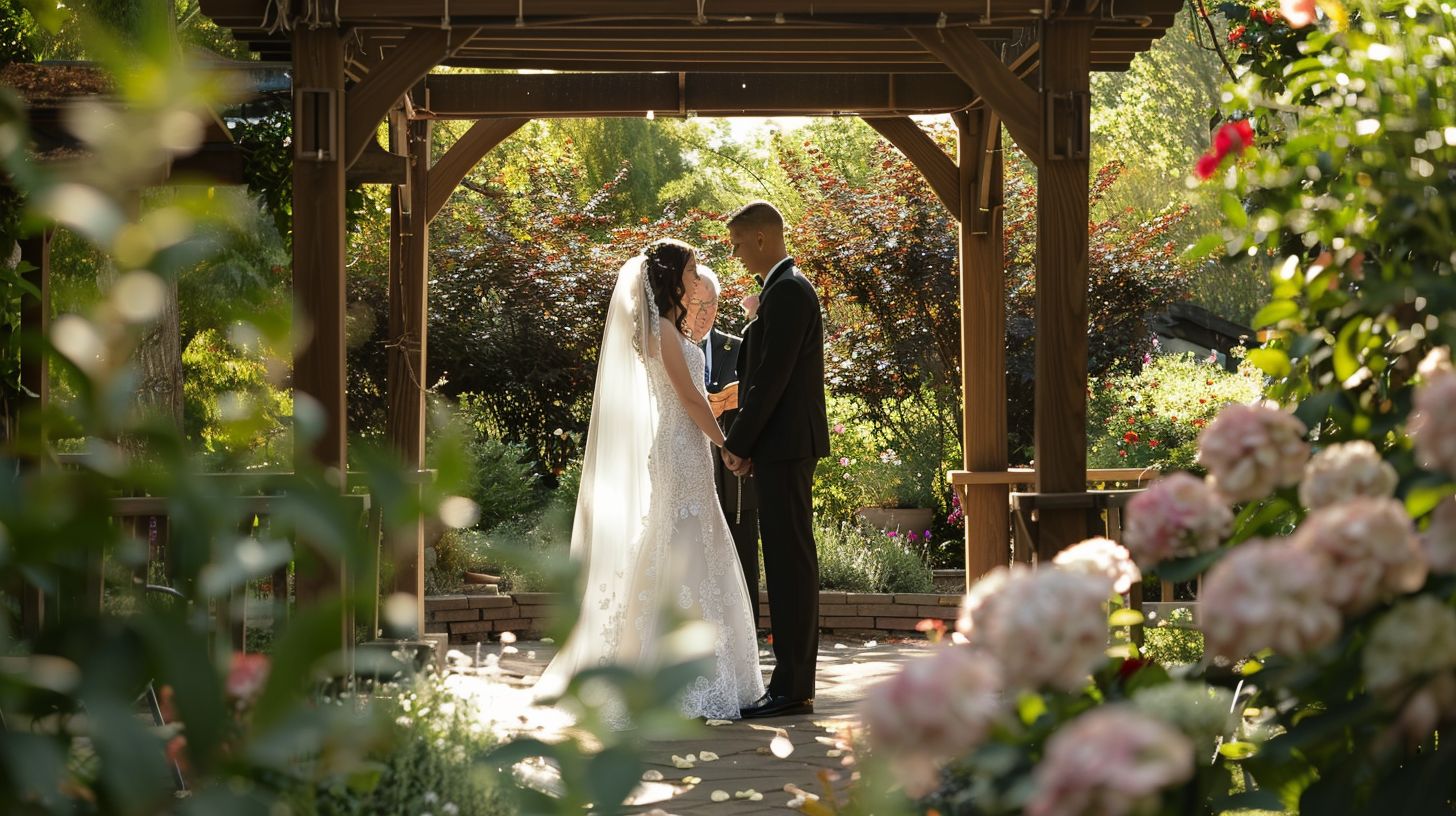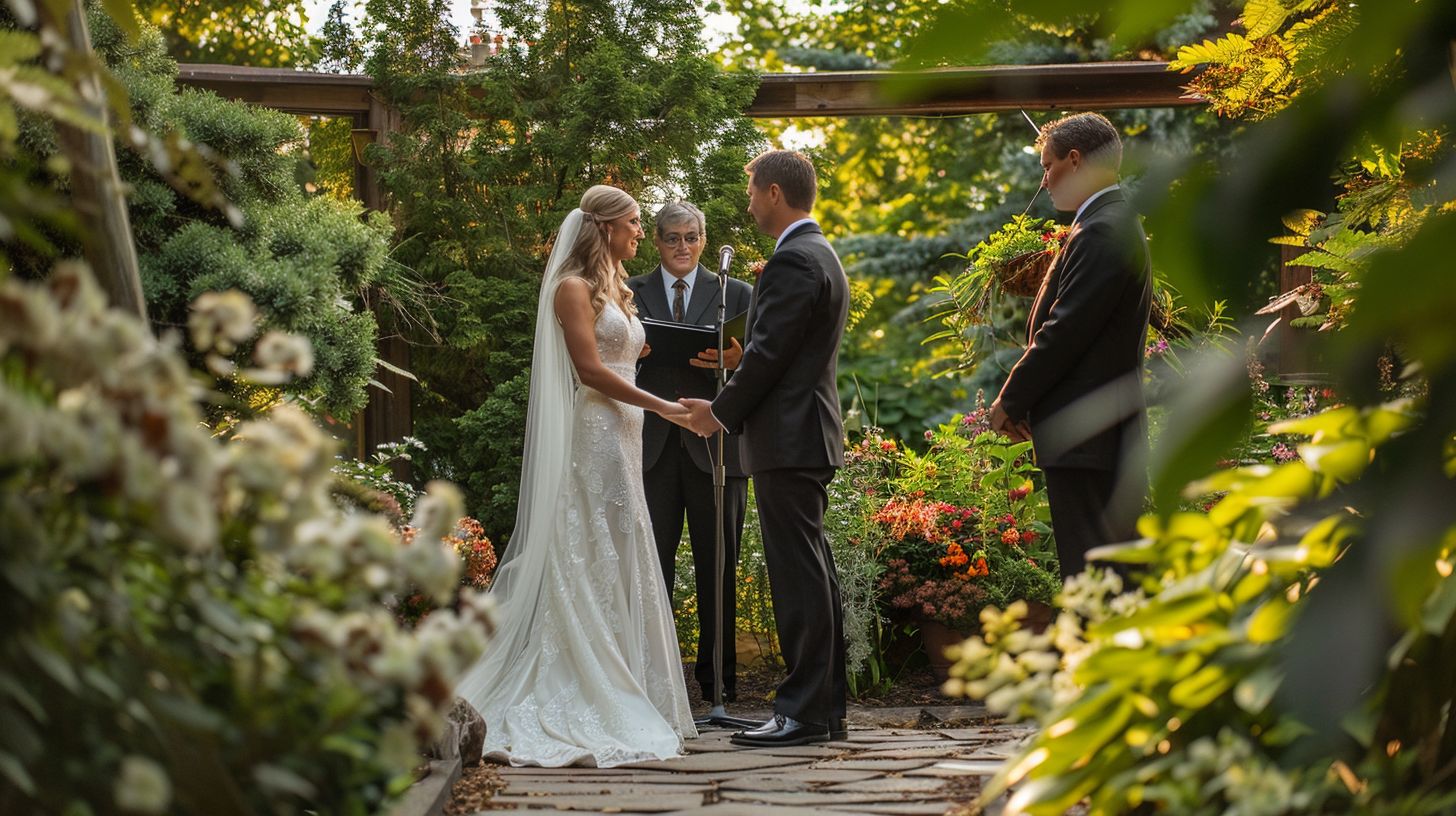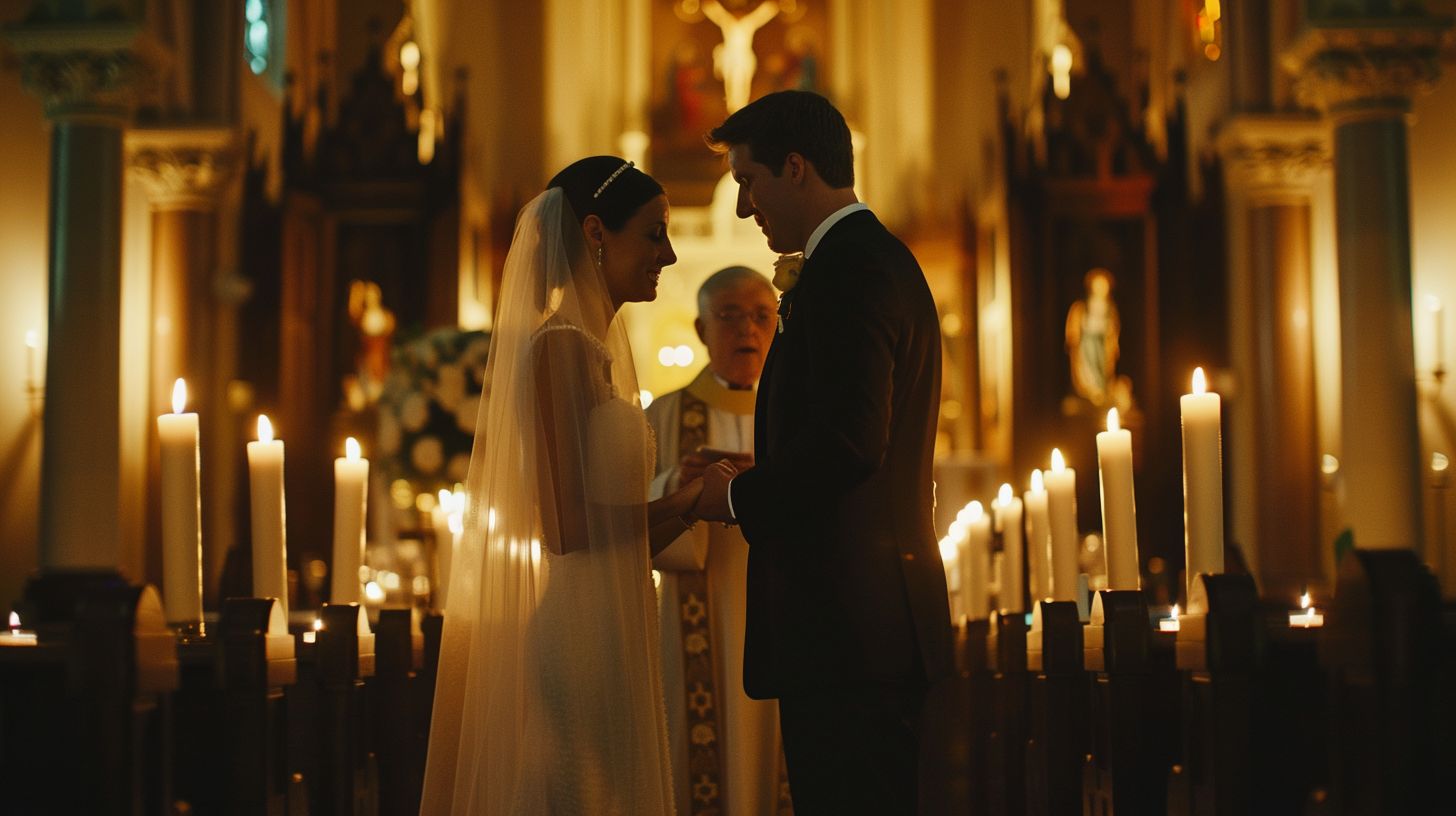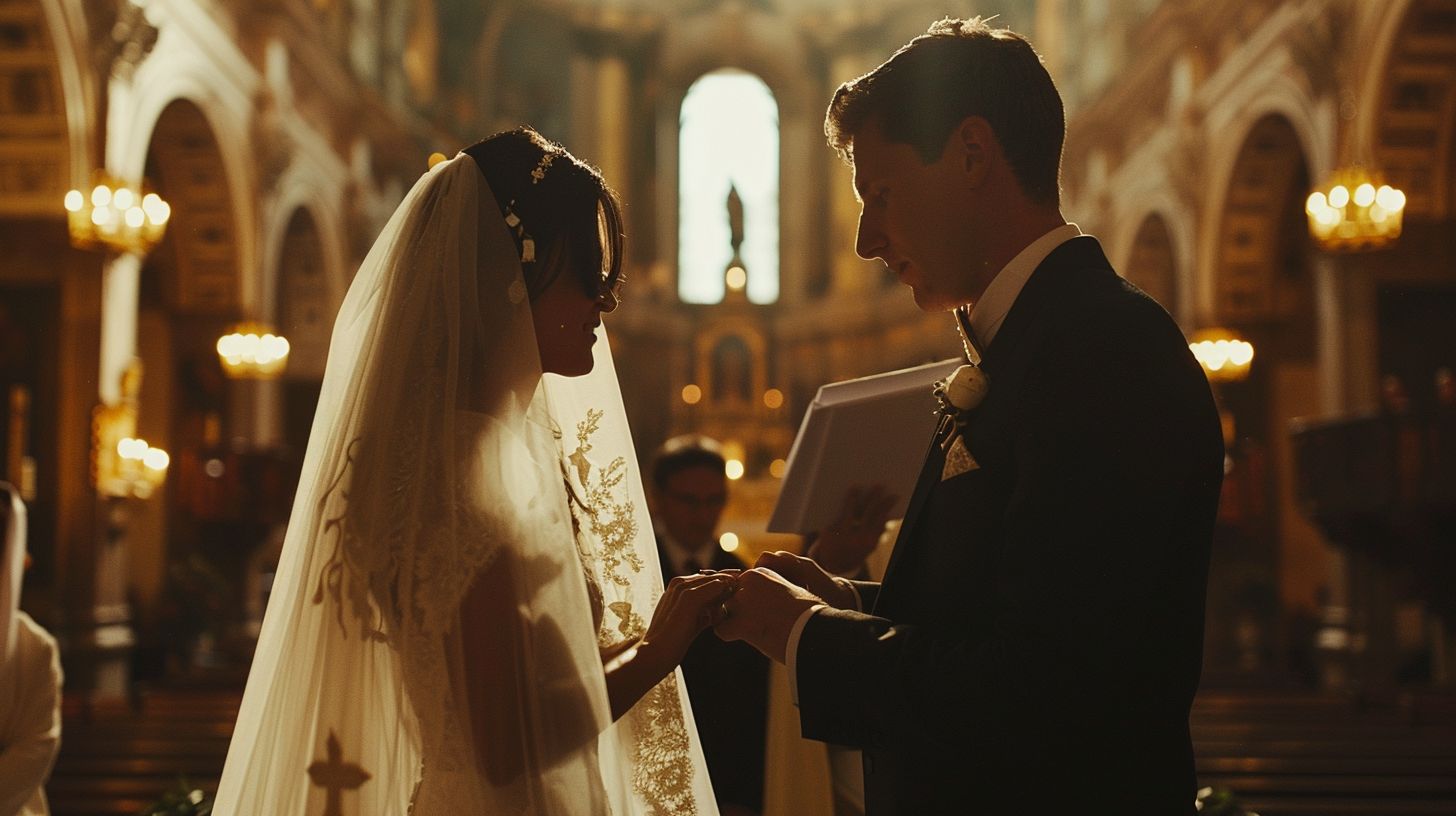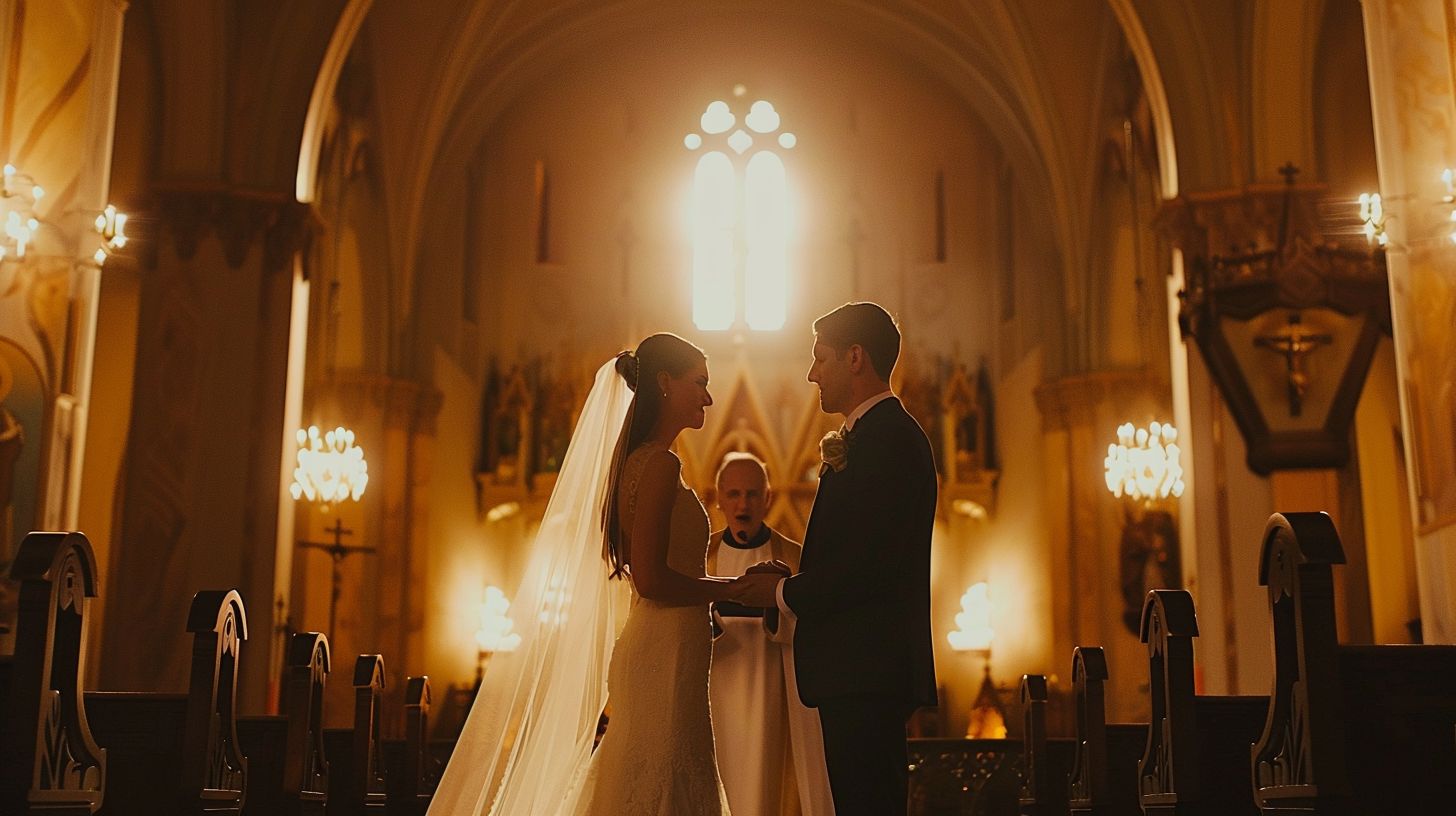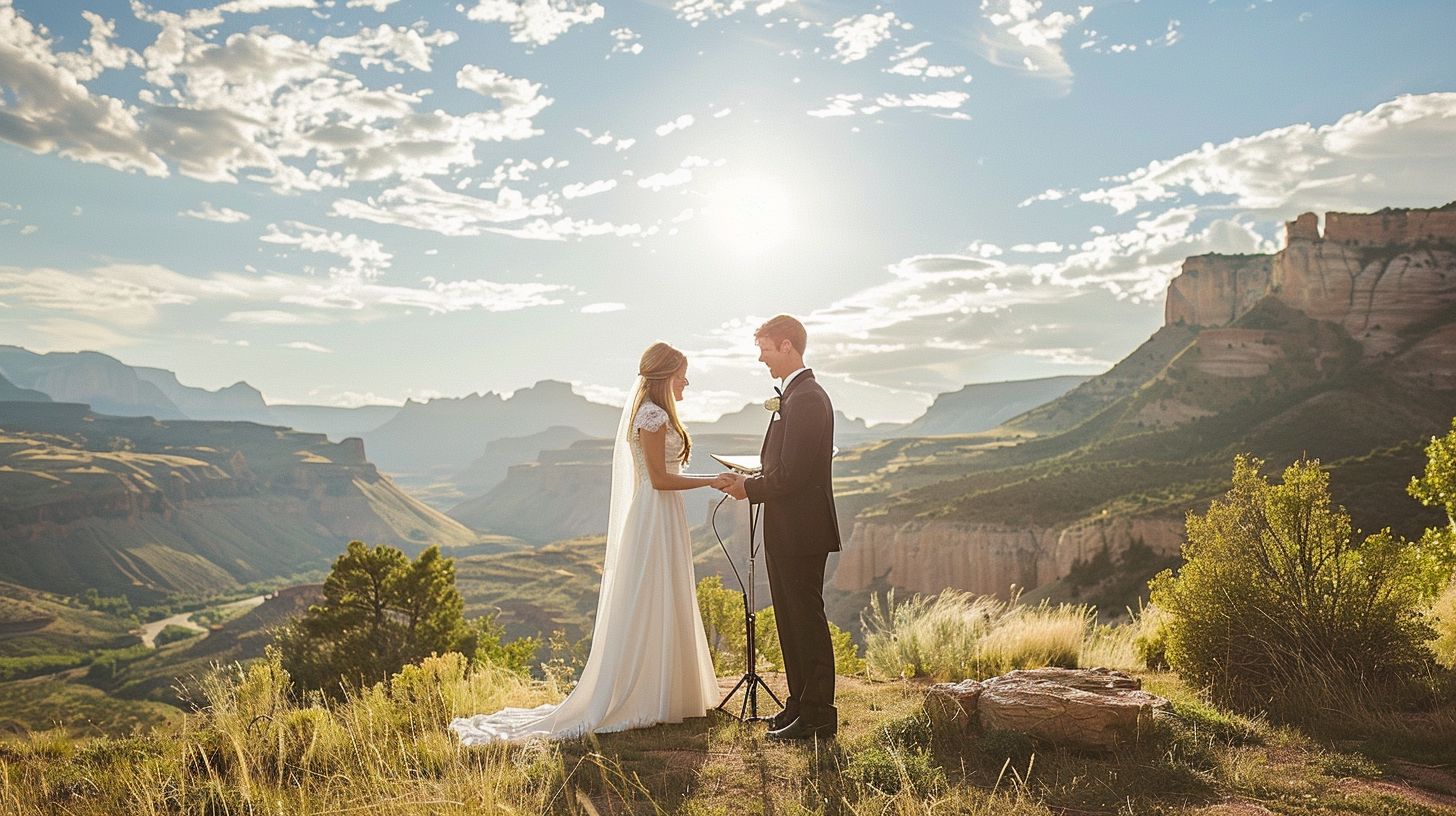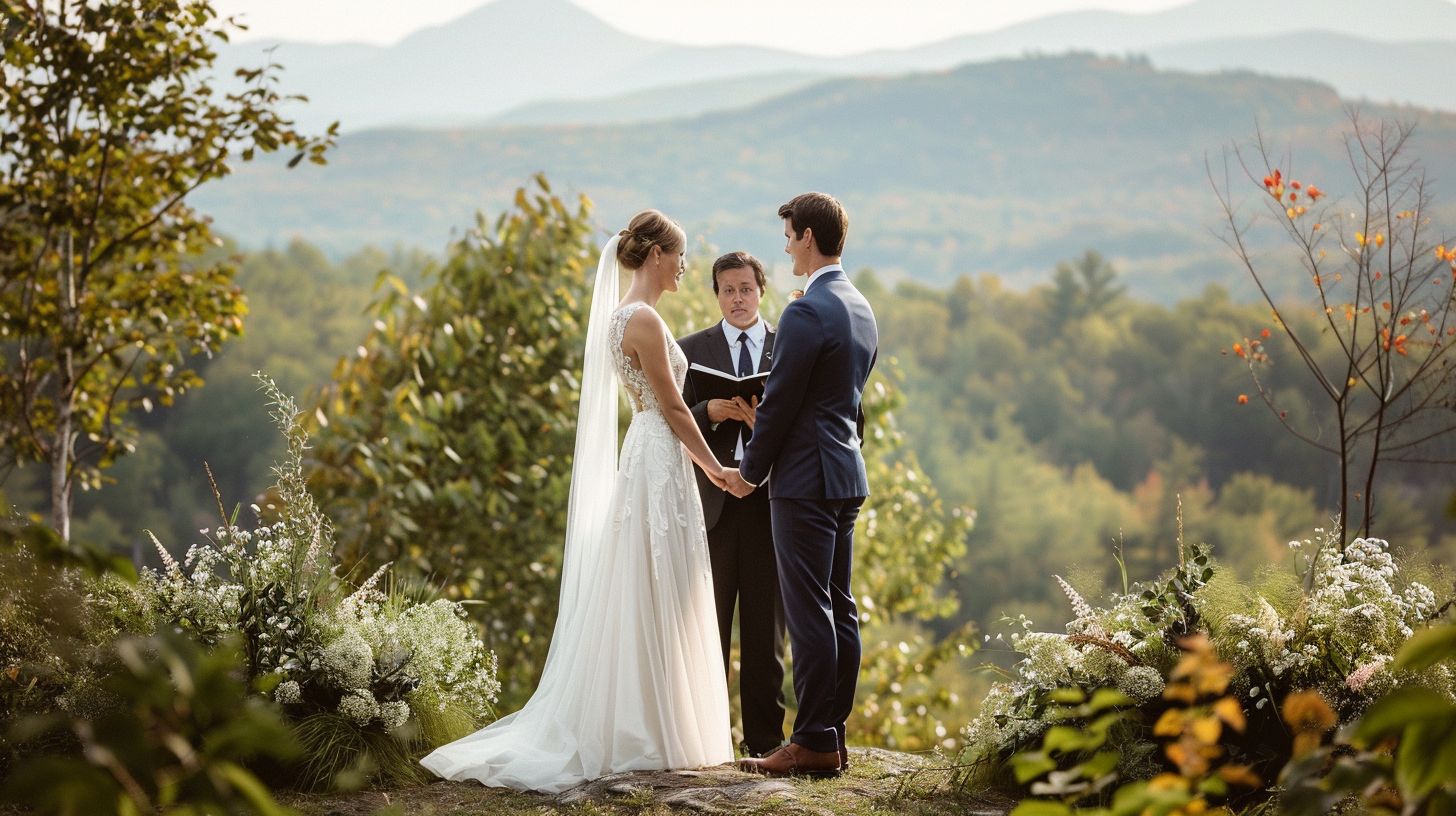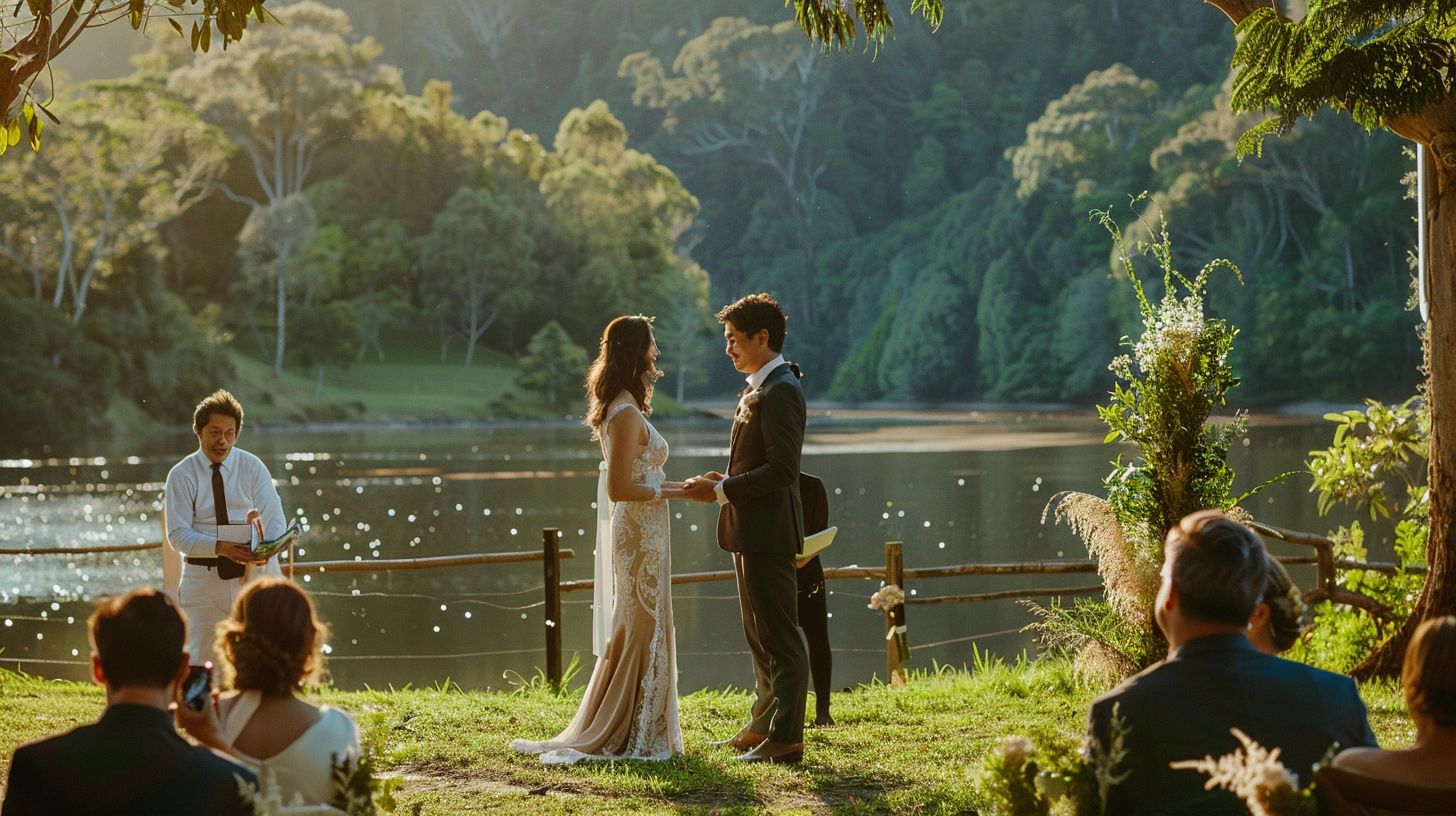Wedding Videographer Lenses & The Best Zoom and Prime Lenses For Wedding Videography
Choosing the perfect lens for wedding videography can be a daunting task. We understand because we’ve walked in those shoes, grappling with the decisions that will make or break capturing those once-in-a-lifetime moments.
After diving deep into research and real-world experience, we’ve uncovered some game-changing strategies tailored specifically for filming weddings. From the crisp clarity of a 24mm lens for those bustling preparation scenes to the warmth and intimacy captured by an 85mm prime lens during reception whispers, this article is your roadmap to ensuring your wedding footage is nothing short of breathtaking.
Intrigued? Let’s dive into some secrets that will elevate your wedding videography.
Key Takeaways
- Prime lenses, including 24mm, 50mm, and 85mm primes, are ideal for capturing close-up details and intimate moments with high image quality. They work well in low-light situations like indoor wedding preparations.
- Zoom lenses offer versatility for fast – paced wedding scenes. A lens like the 70–200mm zoom is great for ceremonies since it allows videographers to capture moments from a distance without interrupting.
- The choice between prime and zoom lenses depends on the scene being shot and lighting conditions. Wide aperture prime lenses are best for dimly lit venues, while zooms provide flexibility in dynamic environments such as receptions.
- Renting lenses before purchasing can help videographers decide which fit their style best without a large upfront cost. Testing different lenses ensures you have the right gear for your specific needs on the wedding day.
- Practicing with chosen lenses before the actual wedding day is crucial. Understanding how each lens performs under various conditions ensures smooth operation during critical moments.
Prime vs. Zoom Lenses: Pros and Cons for Wedding Videography
Moving from a general introduction to the specifics, let’s dive into the heart of camera gear for shooting a wedding – the battle between prime and zoom lenses. This is a crucial consideration for any bride and groom passionate about capturing their special day perfectly.
| Lens Type | Pros | Cons |
|---|---|---|
| Prime Lens (e.g., 24mm, 50mm, 85mm) | – Great in low light – Creates beautiful blur (bokeh) – Encourages creativity through fixed focal length
| – Fixed focal length limits flexibility – May require more lens changes – Requires moving physically closer or farther from the subject
|
| Zoom Lens (e.g., 70–200mm) | – Ideal for fast-paced environments – Allows quick framing adjustments without changing lenses
| – Often heavier and bulkier – May have lower light performance compared to prime lenses – Can be more expensive
|
In our own wedding videography experiences, we’ve found that prime lenses—like the 50mm or the 85mm prime—truly shine during the quiet, intimate moments of preparation. There’s something magical about how these lenses capture the soft, delicate details in stunning clarity. Sure, it means we’re on our feet more, moving around to get the perfect shot, but the results? Absolutely worth it.
For the dynamic moments of a wedding day, from quickly moving from scene to scene during the ceremony to capturing the lively dance moves at the reception, a zoom lens proves invaluable. The flexibility to adjust framing on the fly allows us to keep up with the fast pace without missing a beat. And, while it’s true that zoom lenses can be a bit cumbersome, the versatility they offer in a wedding setting is unmatched.
Each choice—prime or zoom—comes with its own set of trade-offs. Prime lenses, with their fixed focal length, push us to be more thoughtful and creative in composing our shots. The limitations they impose are, in a way, liberating, challenging us to make the most of our position and perspective.
On the flip side, zoom lenses offer convenience and flexibility that can be critical in a wedding’s unpredictable and fast-moving environment. Sure, they might be heavier to carry around, but having the ability to quickly adapt to any situation is a game-changer.
Ultimately, the best lens for wedding videography? It’s not about choosing one over the other. Instead, it’s about understanding the strengths and weaknesses of both prime and zoom lenses and using them to their fullest potential. After all, every wedding story is unique, and capturing it beautifully requires the right tool at the right moment.
Essential Lenses for Different Wedding Scenes
Picking the right lens can make or break your wedding day footage. Each scene during a big day calls for a different type of glass to capture those moments perfectly. Let’s talk about how the best lens choices vary from bridal prep to the last dance.
When filming brides and grooms getting ready, we often reach for prime lenses like 24mm, 50mm, or an 85mm prime. These lenses are key players in our camera gear lineup because they’re sharp and great at low light—perfect for those indoor moments full of emotion and detail.
Prime lenses bring out the beauty in close-up shots without missing the sparkle in a bride’s eye or the intricate designs on a wedding dress. They let us dive into each moment, making it feel like you’re right there with them.
Moving on to saying “I do,” a zoom lens becomes our go-to choice. A good zoom lets us stand back during intimate moments yet still capture everything.
Preparation/Make-Up with 24mm, 50mm, 85mm Prime Lenses
For the preparation and make-up scenes of your wedding day, you can’t go wrong with 24mm, 50mm, and 85mm prime lenses. These lenses are perfect for capturing every detail without making anything look weird.
The 24mm lens is great for wide shots in smaller spaces like hotel rooms or bridal suites. It lets us include everyone and everything in one picture.
The 50mm lens is a favorite among videographers because it mimics what the eye sees. This makes it fantastic for those natural-looking shots where emotions shine through. Then there’s the 85mm prime – our go-to for close-ups of your beautiful details, from the lace on your dress to the sparkle of your rings.
Its ability to blur backgrounds makes you stand out even more.
The right lens captures not just the image but the emotion behind each moment.
Using these lenses requires skill with camera gear but ensures that no candid smile or tearful glance goes unnoticed during these intimate parts of your big day.
Ceremony Coverage with 70–200mm Zoom Lens
We always recommend a 70–200mm zoom lens for shooting the wedding ceremony. Its long focal length lets you capture close-up shots of your special moments from a distance. You can get clear images of your vows and rings without being in the way.
This lens choice is great for keeping those intimate moments intimate.
Using this zoom lens comes with the challenge of avoiding jittery footage, though. A tripod or monopod is almost a must to keep your shots steady and smooth. With these tools, the 70–200mm becomes an essential part of our camera gear for capturing every detail from the “I do’s” to the exchange of wedding bands.
We make sure we’re equipped to deliver a beautiful transcript of your ceremony with clarity and emotion, all thanks to this versatile zoom lens.
Reception Details with 35mm, 50mm, or 85mm Lenses
Capturing the essence of a wedding reception is key. We find that 35mm, 50mm, and 85mm lenses are perfect for this part of the day. These lenses help us grab all those special details—centerpieces, seating cards, and even candid moments with ease.
Our favorite? It depends on the scene. For a wider view that really sets the atmosphere, a 35mm lens works wonders. But when we want to focus on intimate details or faces filled with emotion, we reach for our trusty 50mm or 85mm prime.
We’ve worked in venues from dimly lit historic buildings to sprawling outdoor spaces under the stars. This experience has taught us something important: wide aperture lenses like these are your best friends in low-light conditions common at receptions.
They allow us to capture sharp images without sacrificing quality—a must when preserving memories of your big day! And remember, zooming with our feet rather than relying solely on optical zoom keeps those images crisp and clear.
Transitioning smoothly from shooting dynamic reception scenes to ensuring not a single step of your first dance misses its spotlight…
Recommendations for Top Wedding Videography Lenses
For the perfect wedding day film, our go-to camera gear includes a mix of zoom and prime lenses. The 24-70mm f2.8 lens is versatile, making it a top pick for any wedding videographer.
This lens allows you to quickly adapt from wide scenes to tight close-ups without changing lenses. For those magical moments where detail is everything, the Sigma 50mm f1.4 primes are unbeatable; their large apertures capture stunning bokeh that makes wedding rings and tears glisten.
Moving on, the Canon 70-200mm f2.8 zoom provides exceptional quality across various focal lengths – ideal for capturing heartfelt vows from a distance without disturbing the ceremony’s intimacy.
When shooting in dimly lit venues like receptions, Tamron’s 35mm f1.8 shines by offering sharp images even in low light situations. Each of these tools plays a crucial role in documenting every laugh, kiss, and dance move.
With this arsenal at your disposal—a blend of Sigma primes for details and Canon or Tamron zooms for flexibility—shooting a wedding becomes an artful storytelling journey.
Next up: Tips for selecting and using these lenses effectively will ensure you’re always ready to capture the moment beautifully.
Tips for Selecting and Using Wedding Videography Lenses
Choosing the right lenses for your wedding videography is crucial. We know you want every moment of your big day to be captured beautifully. Here are some tips to help you pick and use the perfect lenses.
Understand where and what you’ll be shooting. For those close-up shots during the preparation, a 50mm or 85mm prime might be your go-to lens. They’re great for capturing sharp images with a lovely blurry background, which makes everything look more romantic.
Lighting can make or break your video quality. If your wedding venue is dimly lit, consider lenses with wide apertures—like a 35mm or an 85mm prime—to let in more light. These lenses ensure your videos won’t end up grainy or underexposed.
Decide between a zoom and a prime lens based on flexibility and image quality needs. A zoom lens, like a 70–200mm, offers versatility without changing lenses often. It’s perfect for the ceremony when moving around can be disruptive. On the other hand, primes—such as a 24mm, 50mm, or an 85mm—are unmatched in clarity and depth of field for those intimate moments.
Investing in camera gear can get expensive. Consider renting different lenses to test which ones suit your style best before making big purchases. It’s an affordable way to access high-quality equipment like that coveted Zeiss or Canon glass without breaking the bank.
Spend time getting comfortable with each lens before the wedding day arrives. Learn how they perform in various lighting conditions and how quickly you can switch between them if needed. Comfort with your gear will help you stay creative under pressure.
With these tips in mind, selecting and using the right lenses for wedding videography becomes less daunting and more about creativity and capturing love stories beautifully.
Conclusion: Choosing the Right Lens for Your Wedding Videography Needs
Picking the perfect lens makes all the difference for your wedding day footage. Prime lenses, like the 24mm, 50mm, and especially the 85mm prime, bring out sharp details in every preparation shot.
They make close-ups stunning without making faces look weird. For those wide shots at the ceremony and lively reception dances, a zoom lens gives you flexibility without missing a beat.
Lensrentals.com stands out as your go-to spot to find these game-changing pieces of camera gear — whether buying second-hand or renting them for just your special weekend. We’ve covered everything from shooting a wedding with primes to when a zoom rules the scene.
Armed with this guide, grabbing that best lens will feel less like guessing and more like stepping confidently into creating memories that last forever on film.
FAQs
1. What lens should I use for wedding videography?
For wedding videography, a 50mm prime lens is often the go-to choice. It’s versatile enough to capture the grandeur of the venue and intimate moments with stunning clarity and beautiful bokeh.
2. Can one lens handle all my wedding video needs?
While a single lens, like a wide-angle or a 50mm prime, can cover many scenarios, having a range of lenses ensures you’re prepared for anything. Think about adding a 100mm macro for those tiny details and perhaps something wider, like a 35mm, to really set the scene.
3. Why are prime lenses recommended over zoom lenses for weddings?
Primes vs zooms — it’s an ongoing debate! Prime lenses tend to offer sharper images and work better in low light conditions common at weddings. They also encourage cinematographers to move around more, capturing unique angles and candid moments.
4. How does focal length affect wedding videos?
Focal length changes how you frame your shots — from capturing the entire bridal party with a wide-angle lens to focusing on small but significant details with longer focal lengths like that of a 100mm macro. Each focal length offers its own perspective and mood.
5. Do I need different lenses for video than photography at weddings?
Yes and no! While many lenses work well for both photo and video during weddings, certain features make some better suited for motion — such as smoother autofocus or stabilization features that help keep your footage steady without needing extra gear like steadicams.
6. What’s essential camera gear for shooting wedding videos besides lenses?
Besides your main camera body and selection of lenses; consider bringing along second shooters if possible (husband-wife teams are great!), DSLR stabilizers or gimbals for smooth motions, plenty of memory cards, batteries… And don’t forget editing tools post-wedding — they’re crucial in turning raw footage into magical memories!

